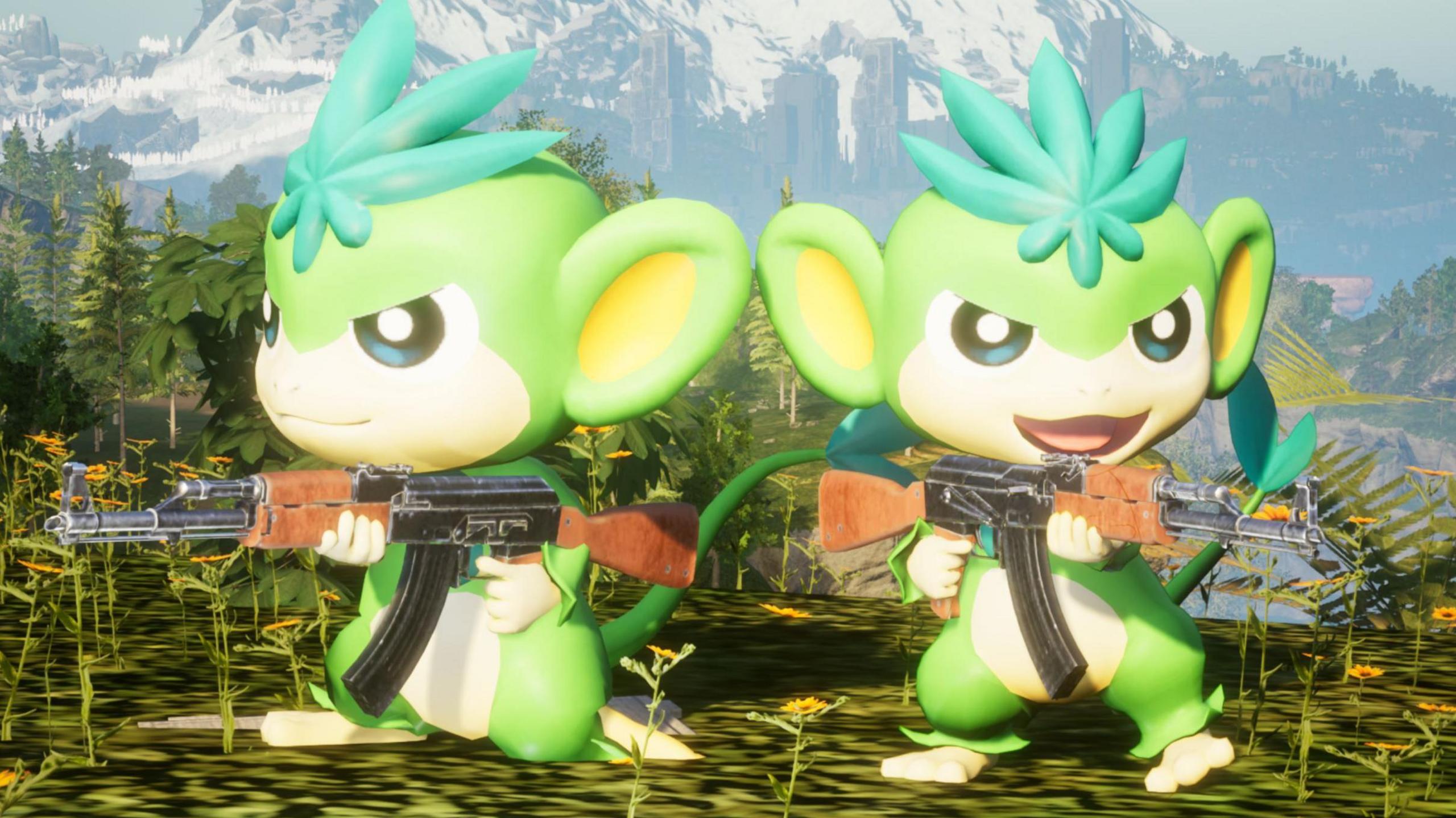Nintendo sues 'Pokémon with guns' video game firm

- Published
Nintendo and its partner The Pokémon Company have filed a legal case against the maker of the hit survival adventure game Palworld over alleged patent infringement.
Palworld quickly earned the nickname "Pokémon with guns" when its first trailer was unveiled in 2021.
Just days after the game's release in January this year, The Pokémon Company said it would investigate the copycat claims.
Palworld's developer, Pocketpair Inc, acknowledged the lawsuit in a statement on Thursday and apologised to fans for "any worry or discomfort" caused.
Pocketpair's boss previously said the game had passed legal checks.
But Nintendo is known for fiercely protecting its intellectual property and brand.
Pokémon said in statements posted on their websites, external that Palworld "infringes multiple patent rights".
"This lawsuit seeks an injunction against infringement and compensation for damages".
Palworld has become a major hit, with more than 25 million players within a month of its release.
Like the popular franchise of Pokémon video games, it also centres around collecting strange creatures with different powers.
Pocketpair's website describes the game as seamlessly integrating "elements of battle, monster-capturing, training, and base building."
Players, known as "pal-tamers", travel around a large map battling human foes and creatures known as "pals" which can be captured and recruited.
The monsters can either fight alongside the player in battles, or be put to work at a base, crafting supplies and items for use in the field.
In January, The Pokémon Company said it planned to investigate claims that Palworld had copied its games, after fans pointed out similarities.
The Pokémon Company said at the time it would take "appropriate action" if it found its copyright had been breached.
Pocketpair said in response to the lawsuit, external on Thursday it would begin taking action on and investigating The Pokémon Company's claims.
But it added that it was "unaware" of the specific patents that it had been accused of infringing.
"We have not been notified of such details," it said.
A Nintendo spokesperson told the BBC it would "refrain from commenting on topics that relate to the content of the lawsuit".
The company "has a track record of suing organisations and individuals which it feels has infringed upon its IP," said gaming industry analyst Piers Harding Rolls.
He told the BBC its latest lawsuit "continues this trend" - and reflects the importance of the Pokémon franchise to the gaming giant.
"Nintendo is part owner of The Pokémon Company and the Pokémon franchise, and the series of games are inextricably linked to Nintendo’s console business," he said.
Earlier this week, Pokémon reportedly, external won a $15m legal fight against several Chinese game developers it accused of infringing its copyright.
Pocketpair, meanwhile, said it was "truly unfortunate" that, as a smaller, independent game developer, it would now have to allocate time and resources to the lawsuit, rather than to Palworld.
"However, we will do our utmost for our fans, and to ensure that indie game developers are not hindered or discouraged from pursuing their creative ideas," it added.